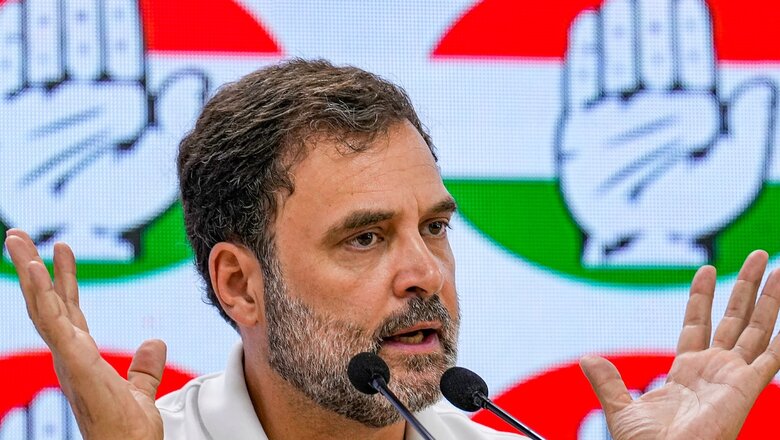
views
Rahul Gandhi has penned a metaphorical essay on his understanding of the essence of Sanatan Dharma. As metaphors go, it is sufficiently esoteric and, therefore, for the most parts, likely to be understood only by Gandhi’s inner circle. But having said this, Rahul Gandhi does draw one problematic conclusion.
He writes: “She (Hinduism) is not a victim. And never allows her fear to capture her and turn her into a vehicle for anger, hatred or violence.”
It is one thing to counsel Hindus to make a virtue out of the power of forgiveness; to let go off their fears; to never allow their fears to turn them into a vehicle for “anger, hatred or violence”. It is quite another to deny that Hindus have suffered at the hands of colonisers who were intent on dismantling the richness of the Hindu civilisation.
Rahul Gandhi’s eagerness to deny that Hindus have been victims in the land of their birth appears to stem from two impulses among secular-liberals. First, to propagate a sense of civilisational oneness (Ganga-Jamuni tehzeeb) at all costs; even if it means to distort history. Second, to absolve non-Hindus of the blame of carrying out atrocities against Hindus. This latter tendency is a factor of a callow politics. The hope that appeasing minorities will shape a vote bank.
Two instances of this kind of sophistry spring to mind.
In 1921, Moplah Muslims attacked Hindus in hordes along the Malabar coast. In one such attack on September 25, 1921, 38 Hindus were beheaded. There were several other well-documented accounts of ineffable atrocities upon Hindus. But no less a figure than Mahatma Gandhi normalised the violence, shockingly placing the onus on the Hindus saying: “(Hindus) must find out the causes of Moplah fanaticism. They will find that they are not without blame. They have hitherto not cared for the Moplah. They have either treated him as a serf or dreaded him. They (Hindus) have not treated him as a friend and neighbour, to be reformed and respected. It is no use now becoming angry with the Moplahs or the Muslims in general.”
Dr BR Ambedkar shed light on the reasons why Mahatma Gandhi took such a partisan stand. In his book Pakistan or Partition of India, Dr Ambedkar wrote: “Can any sane man go so far, for the sake of Hindu-Muslim unity? But Mr Gandhi was so attached to Hindu-Muslim unity that he did not stop to enquire what he was doing in this mad endeavour…”
Without going into the reasons why Gandhi felt the need to propagate an idea of Hindu-Muslim unity beyond what has been pointed out, it is sufficient to say that the Mahatma’s decision to paint Hindus as provocateurs and not victims mocked Hindus. After all, which other community in the world can claim to be part of an unbroken tradition that has opened its heart, mind and hearth to others?
More recently, in Kashmir, during the late 1980s and early 1990s, another attempt was made to place the upon Hindus the onus for inviting a genocide. Kashmiri Hindus were externed from the Kashmir Valley by Islamists. But the atrocity was blamed by many upon economic inequity and not Hindumisia. Indeed, it was subtly posited that Kashmiri Pandits invited a backlash because they had a near monopoly over the state’s resources.
Imagine, saying that to six million Jews who were gassed by the Nazis. Would they ever accept the suggestion that they were responsible for their own genocide because they were the patricians mean-spiritedly denying others their due in Germany?
Rahul Gandhi might be as well-disposed as the Mahatma was to the cause of Hindu-Muslim unity, but to deny that Hindus have not been victims is to give a licence to Hinduphobes. In any event, since when is giving a licence to violence without cause an inherent part of Hindu Dharma?
Rahul Gandhi missed a golden opportunity to shame those who betrayed the innate Hindu impulse of placing their blind trust in the goodness of others. By not doing so, has Rahul Gandhi squandered an opportunity to honestly galvanise all Indians to abide by the precepts of the most eternal and universal dharma known to humanity – Sarva Dharma Sambhava?
Introspection is strongly advised.
Rahul Shivshankar is Consulting Editor at Network18. He tweets at @RShivshankar.











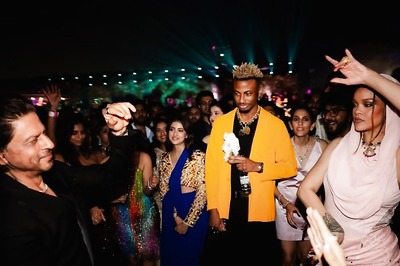


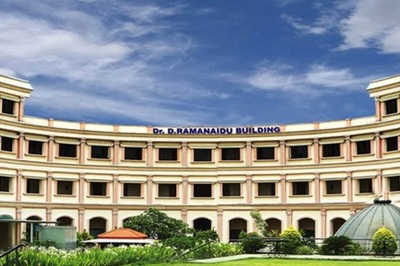
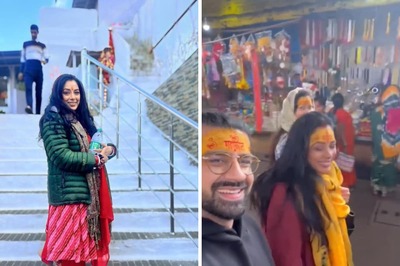
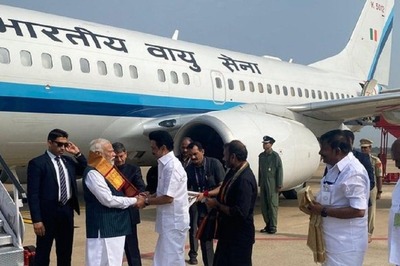



Comments
0 comment